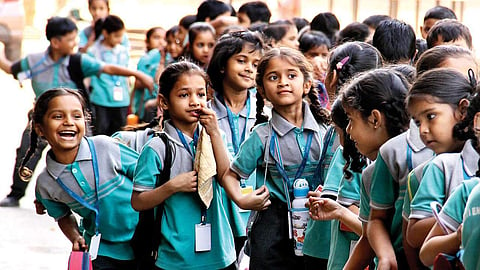

Various states have flagged the funding issues regarding the proposed New Education Policy (NEP) by the Union HRD Ministry, saying the draft has some good proposals but no ‘financial plan of action for implementation’. The issue was raised by Education Ministers and other representatives from certain states in the recent meeting of the HRD Ministry's Central Advisory Board of Education (CABE), according to the minutes of the meeting.
"Finance is very important to implement this policy and the draft policy has not spoken much about the financial plan of action for implementation. The extension of Right to Education (RTE) act will further burden states in terms of funds, and the centre should bear the brunt for it," KN Prasad Verma, Bihar's Education Minister, said in the meeting. Karnataka's Education Minister C N Ashwath Narayan, said, "Finance is important in proper implementation of schemes and programmes, but most of the revenue goes into the recurring grants".
Delhi's Deputy Chief Minister Manish Sisodia said that the policy is a ‘wishful’ draft and has no mention of how it will be implemented and what needs to be done in the run up to the implementation. "The Indian education system is highly regulated but poorly funded," he said in the CABE meeting. Arun Kumar Sahoo, Odisha's Education Minister, pointed out that, "More funds are required for the implementation of the policy in the states, so a proper financial plan should be prepared for the implementation of the policy," said. Sahoo suggested a ‘give back to roots’ programme and ways to involve alumni in generating more funding.
Andhra Pradesh's Education Minister Audimulapu Suresh also stressed on the need of budgetary provisions. "More funds are required and a proper allocation is necessary to implement the policy. Some of the initiatives like pre-primary education and about anganwadi workers are good but it is not possible for states to do it alone, and the Centre should provide funding," Minister of State for School and Mass Education Odisha Samir Ranjan Das.
Prabhuram Chaudhury, Madhya Pradesh's Education Minister, demanded extra funds from the state and suggested that centralisation should be avoided. A panel led by former Indian Space Research Organisation (ISRO) Chief K Kasturirangan had submitted the draft of the new National Education Policy (NEP) to Union Human Resource Development Minister Ramesh Pokhriyal 'Nishank' when he took charge.
The draft was then put in the public domain to seek feedback from various stakeholders and over two lakh suggestions were received by the HRD Ministry about the same. The existing NEP was framed in 1986 and revised in 1992. The new education policy was part of the Bharatiya Janata Party's manifesto ahead of the 2014 general election. The drafting experts also took into account the report of a panel headed by former cabinet secretary T S R Subramanian and formed by the HRD Ministry when it was being headed by Smriti Irani.
